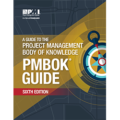
Sun Tzu’s “The Art of War” is a timeless masterpiece, offering strategic insights that have influenced military leaders, business executives, and strategists for centuries. Although it was written over two millennia ago, the principles laid out in this ancient text are remarkably applicable to modern project management.
A project is not necessarily a “battle to be won,” but many aspects of project management are indeed similar in principle. Hence, by adopting Sun Tzu’s tactics, project managers can navigate complex challenges, optimize team performance, and achieve successful project outcomes.
1. The Importance of Planning: “Every battle is won before it is fought.”
Sun Tzu emphasized the critical role of preparation and planning. In project management, this translates to thorough project planning and defining clear objectives. Before embarking on any project, it’s crucial to establish a detailed project plan that outlines goals, deliverables, timelines, resources, and potential risks. This preparation ensures that all team members are aligned and equipped to tackle the tasks ahead, minimizing surprises and fostering a sense of direction.
2. Know Your Enemy and Know Yourself: “If you know the enemy and know yourself, you need not fear the result of a hundred battles.”
Understanding both your strengths and weaknesses, as well as those of your competitors or challenges, is vital in project management. Project managers should conduct SWOT (Strengths, Weaknesses, Opportunities, Threats) analyses to gain insights into their team’s capabilities and potential obstacles. By recognizing these factors, managers can develop strategies that leverage strengths and opportunities while mitigating weaknesses and threats.
3. Flexibility and Adaptability: “In the midst of chaos, there is also opportunity.”
Sun Tzu taught the value of being adaptable and responsive to changing circumstances. In the dynamic world of project management, unexpected challenges and changes are inevitable. Effective project managers are flexible, ready to pivot and adjust their plans as needed. This might involve reassigning resources, altering timelines, or revising project scopes to accommodate new information or unforeseen obstacles. Embracing change and remaining agile can turn potential setbacks into opportunities for innovation and improvement.
 4. Leadership and Team Dynamics: “Treat your men as you would your own beloved sons. And they will follow you into the deepest valley.”
4. Leadership and Team Dynamics: “Treat your men as you would your own beloved sons. And they will follow you into the deepest valley.”
Sun Tzu understood the importance of strong, empathetic leadership. Project managers should foster a supportive and motivating environment where team members feel valued and respected. Building trust and rapport within the team encourages collaboration and enhances overall performance. Recognizing individual contributions, offering constructive feedback, and providing opportunities for professional growth are all strategies that align with Sun Tzu’s principles of effective leadership.
5. Strategic Resource Allocation: “He will win who knows when to fight and when not to fight.”
Resource management is a critical aspect of project management. Sun Tzu’s advice to choose battles wisely applies to prioritizing tasks and allocating resources efficiently. Project managers must identify which tasks are crucial to the project’s success and focus resources on those areas. This may involve making tough decisions about which initiatives to pursue and which to defer or eliminate. Strategic resource allocation ensures that the most important aspects of the project receive the necessary attention and support.
6. Risk Management: “In war, the way is to avoid what is strong and to strike at what is weak.”
Sun Tzu advocated for targeting vulnerabilities and avoiding direct confrontation with strengths. In project management, this means proactively identifying and mitigating risks. Conducting regular risk assessments, developing contingency plans, and staying vigilant for potential issues can prevent minor problems from escalating into major crises. By addressing risks early and strategically, project managers can navigate challenges more effectively and maintain project momentum.
7. Communication and Information: “All warfare is based on deception.”
While deception is not a desirable tactic in project management, the underlying principle of controlling information flow is relevant. Clear, consistent, and transparent communication is essential for project success. Project managers must ensure that all stakeholders are kept informed about progress, changes, and any issues that arise. Effective communication builds trust, facilitates collaboration, and ensures that everyone is working towards the same objectives.
Conclusion
Sun Tzu’s timeless strategies offer valuable lessons for modern project management. By incorporating his principles of thorough planning, understanding strengths and weaknesses, maintaining flexibility, fostering strong leadership, strategically allocating resources, managing risks, and ensuring effective communication, project managers can enhance their ability to lead projects to successful outcomes.
In the ever-evolving landscape of project management, Sun Tzu’s wisdom provides a powerful framework for navigating complexities and achieving excellence.











Leave a Reply